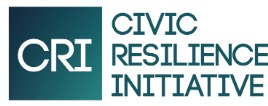*Disclaimer: For security reasons, our interviewee decided to stay anonymous.
In recent years, defense policy and security issues have become particularly relevant in Lithuania, not only due to the geopolitical situation but also because of the growing public interest in national security. Trust in the country's defense decisions is one of the key factors in strengthening societal resilience and preparedness for potential threats.
Can Lithuanian citizens fully trust the state’s decisions on security and defense? How do the military and the authorities strengthen this trust?
I believe that Lithuanian citizens can, in principle, trust the state's decisions on national security. Polls conducted in 2024 indicate that confidence in the military reaches 80%, reflecting a positive public perception of the country’s defense policy. This trust is largely supported by the high level of transparency within the national defense system, where citizens have unrestricted access to information regarding budget allocation, military salaries, procurement of new defense systems and planned projects. Key decisions are made public and regularly updated, allowing citizens to follow the development of defense policies. Additionally, the authorities do not attempt to conceal shortcomings but openly acknowledge challenges and outline the measures being taken to address them.
In my view, close cooperation between the government and the military is a crucial factor in building public trust. Authorities rely on professional military advice when determining the strategic direction of the armed forces. Moreover, the military plays an active role in society by supporting citizen initiatives and assisting other institutions during emergencies. While it is not very common in Western countries to deploy the army in peacetime, Lithuania, because of its size and its neighbors, cannot afford to have troops working only abroad.
What would be your advice to the Lithuanian population on protecting themselves against disinformation, especially concerning war and security issues?
To safeguard against disinformation, it is essential to rely on multiple sources of information rather than a single news outlet or social media platform. Today, most of the news reaches people through social networks such as X (formerly Twitter), TikTok, Instagram or Facebook. The owners of these platforms can easily shape the information environment for their users, making it crucial to maintain a critical mindset and seek alternative sources.
I have personally experienced how information flows can shift. For instance, after Twitter transitioned to X, my news feed became more extreme, frequently pushing content related to specific ideologies or alleged crime stories linked to illegal migration. This illustrates how algorithms can influence what users see, reinforcing certain narratives.
I think it is important not only to moderate time spent on social media but also to actively seek out diverse and reliable information sources. Of course, I am not suggesting going to extremes - if the source is trustworthy, it can be relied upon. However, context matters, and it is always necessary to verify facts. Sensationalist headlines on war and security issues often distort reality, so it is crucial to read the full article rather than just the headline. The details within the article provide a clearer understanding of the situation and help to avoid misinterpretations.
What role do you think the public could play in strengthening national security and resilience to information threats?
In my view, the role of the public in national security and resilience is crucial. I do not believe our society is uneducated or weak, but there is always room for improvement. Many people have acquaintances who either spread hostile propaganda or are deeply skeptical of the state. Often these individuals are ignored because discussions with them can seem difficult or even pointless. In my opinion, ignoring such people creates a breeding ground for propaganda and for influencing those who are less interested in national security issues. For this reason, it is important not only to be able to identify disinformation but also to be able to deconstruct it in an argumentative manner and to clarify certain statements made by hostile individuals. And fighting with words alone will always be less costly than a real war.
What are the most important lessons that the Lithuanian military and the public have already learned from the experience of the war in Ukraine, and how do these lessons impact our preparedness for possible future threats?
In my opinion, the war in Ukraine has provided a crucial lesson: Russia is not an invincible opponent, and resistance is possible. Before the war in Ukraine, it was often said that Russia could easily take Lithuania. However, the war has shown that even when attacking a smaller state, an aggressor must engage enormous resources, not only to the offensive but also to secure its position on other fronts. This suggests that Lithuania is not as vulnerable as it might seem in a simple one-on-one military calculation.
The war has also reinforced the importance of NATO’s unity and its ability to respond effectively when needed. While there is always room for improvement, Lithuania’s decision to join NATO in 2004 was a critical strategic step that significantly strengthened its security. Equally important is the lesson of bringing the public and the military together. In Ukraine, banks, restaurants, and social institutions operate even during wartime, showing that not everyone has to take up arms to contribute to the defense of the country. Everyone can use his or her skills to contribute to the common cause. Whether it is an extra jar of preserves made by a grandmother or a comment or activity on social networks by a young person in support of Lithuania's position, it is a step towards a common goal. And we are not necessarily talking about specific skills such as programming, building technology or flying drones.
Background illustration: Birute Vijeikiene

